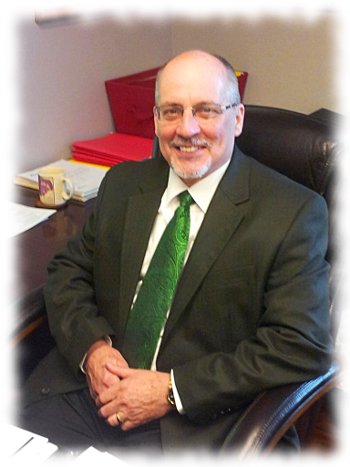The High Priest’s Palace: The Place of a “Fair” Trial?
by Pastor Edwin Lehmann on March 25, 2019 in Mark 14:53-64
Midweek Lent 3 March 20&21, 2019
Text: Mark 14:53-64 Synodical series from 2003 rewrite 19:2116
Theme: The High Priest’s Palace: The Place of a “Fair” Trial?
We want life to be fair. We make rules and want them enforced in the same manner for all people. That’s the reason we have courts and judges and juries and lawyers. We want both sides of a case in court to have their say and then let the men and women of the jury decide, all in the name of fairness. We want our judicial system to be fair and just, at least, that’s the way it ought to be.
I. The men who arrested Jesus in the Garden of Gethsemane led the prisoner bound through the dark streets of Jerusalem to the Jewish courtroom. It was located in the palace of the high priest. He presided over the Sanhedrin, the ruling body of the Jews which also served as their court to decide matters of right and wrong according to Jewish law. The 70 judges who made up the court were already there.
It was against their law to try a man at night. They all knew that. But they did not care. They hated Jesus so bitterly that they could not wait until morning. They longed to condemn Him so that they could get rid of Him and get on with their lives. Indeed, the head judge, Caiaphas, already proclaimed that the death sentence must be given (Jn.11:50). This trial was not about justice, or in the end would it be?
If a fair trial would not be given in the high priest’s palace, then at least the semblance of justice had to be given. So they brought in witnesses to speak against the defendant, Jesus. These were not witnesses who had seen Jesus do something wrong, because Jesus had never done anything wrong. They were false witnesses, willing to lie to please the high priest and the 70 judges. Probably, they had even been coached what to say and promised a reward for their lies.
The soldiers brought Jesus into the courtroom, and the witnesses stood up to testify. But something unexpected happened. The witnesses, who had been carefully coached, could not agree. No two of their stories were the same. That was crucial among the laws of the Jews. In the mouths of two or three witnesses everything must be established. A man could not be condemned unless at least two people had seen him commit the crime. It was God’s command so that fairness and justice might prevail. But that night, before these 70 judges, no two stories agreed, and the head judge, the high priest Caiaphas, was getting frustrated. The case against Jesus was collapsing. No charges against Him would stick. Well, of course not; Jesus was innocent.
Turning away from the bungling witnesses, Caiaphas stood up and screamed at Jesus: “Aren’t you going to answer any of these accusations against you?” Since the false witnesses weren’t any help, Caiaphas hoped that Jesus would say something that might incriminate himself and give an excuse to execute Jesus. Of course, this too, like the trial being held at night, was against the law. It is not fair for a man to be forced to testify against himself. But Caiaphas cared little for the law. If only he could get rid of Jesus.
Jesus gave no answer to the high priest. He made no attempt to address the lies of the false witnesses. His silence incensed the high priest even more.
“Tell me about your teaching,” Caiaphas asked craftily.
“I taught openly in the temple,” Jesus answered. “I did not teach in secret. Ask some witnesses what I said.”
At those words Jesus was slapped across the face. Jesus calmly responded, “If I have said something wrong, tell me what it is. If I have not said anything wrong, why do you strike me?”
The high priest grew frantic. Jesus had to be tricked to give an answer by which they could charge Him with a crime. “Tell me whether you are the Christ, the promised Savior, the Son of God.”
Throughout the centuries since, men and women have repeated that question in one way or another. To Caiaphas, Jesus was an imposter, a threat, a charlatan who could so some amazing miracles. But Caiaphas did not and would not believe in Jesus. Many have done the same since.
Under oath Jesus answered, “Yes, it is just as you have said.”
For those who did not believe in Jesus then and who do not believe in Him today, this is perjury. They ask, “How could Jesus be the Messiah, God Himself? He’s just a man.” But this testimony was given under oath. Caiaphas called on the living God as witness to the answer and Jesus swore to tell the truth. For me, Jesus’ answer is clear and unmistakable. He claimed to be God. The question is always whether one believes His answer. By the Holy Spirit, I do.
Jesus continued, “Someday you will know that for sure when you see me coming to judge the world on the clouds of heaven.”
At that the high priest tore his clothes to show how shocked and horrified he was, or at least, that he pretended to be. That, too, was against God’s law. “The high priest is not to tear his clothing,” God said, “or he will die and the Lord will be angry…” (Lv.10:6). My, how many laws Israel’s judges broke that night. But it did not matter to them. Justice was not on their minds – getting rid of Jesus was. And it consumed them
“He is guilty of blasphemy!” the high priest cried. “He pretends to be God!” All those of the seventy who were present agreed with one voice: “He must die for this sin.” And the guards took Jesus out to beat Him.
II. We want life to be fair. We want the judicial system to treat us all fairly. Was this fair? Many people that evening wanted Jesus to be guilty of wrong doing. They wanted that so badly that they were willing to break their own laws. And all of them were Israel’s judges. Yet, when all was said and done in their trial of Jesus, they could come up with nothing against Him. We’re not surprised. We know who Jesus is – exactly who He said He was. He is the Son of God, our Savior, holy, sinless. He never committed any sin of thought, word, or deed – in the courts of men, that is.
But we must look deeper. There was another trial going on that night. The court in heaven was in session. God, the righteous judge, the totally just One, sat on the bench. He examined the totally innocent One, Jesus, and pronounced him guilty. Fair or unfair? In God’s eyes the verdict was just because God saw on His Son the sins of the whole world. True, it was “we are like sheep, who have gone astray.” But “the Lord laid on Him the iniquity of us all” (Is.53:6). It was a verdict and result arranged by the Father, the Son, and the Holy Spirit from the beginning. Fair or unfair? It was just before heaven’s higher court and before God Himself, for He had arranged it to be so.
And consider this, where else could we have gone to find a scale of justice that would have been strong enough to hold our burden? Only Christ could carry it. Even more, how do I explain the great love that moved Jesus who was innocent in Himself to become guilty in my place? I can’t explain it, humanly speaking, but I thank God, my Savior that He arranged it because through Him we stand justified in heaven’s courtroom. On His guiltless self made dirty by my sin lies the wondrous truth of my salvation. God grant it to us all in faith for Jesus’ sake. Amen.

